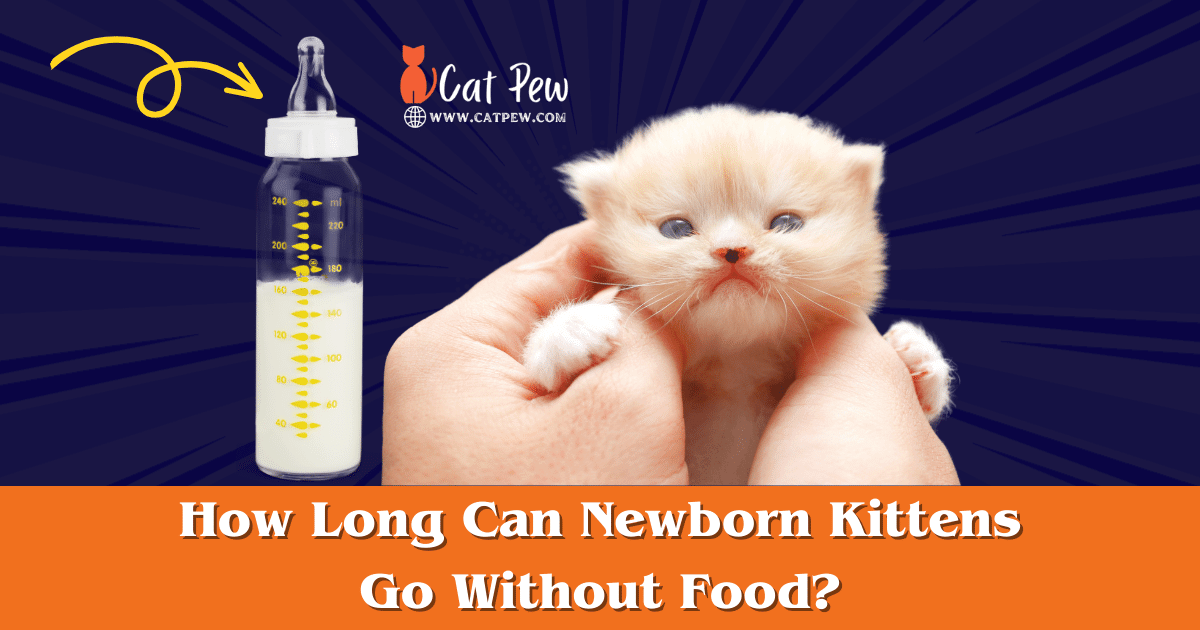Newborn kittens can typically go without food for up to four hours. Bringing new life into the world is a beautiful experience, especially when it involves adorable little kittens.
While caring for these delicate creatures, it is essential to be aware of their nutritional needs, including how long they can go without food. Newborn kittens have relatively small stomachs and require frequent feeding. In the first few weeks of their life, they depend solely on their mother’s milk for sustenance.
However, it’s common for new kitten owners to wonder how long their furry friends can go without eating, especially if the mother is not present or unable to nurse. Understanding the kittens’ endurance without food can make a significant difference in ensuring their well-being. So, let’s explore how long newborn kittens can go without food and what steps to take for optimum care.
The Importance Of Milk For Newborn Kittens
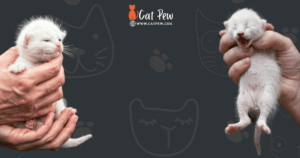
When it comes to newborn kittens, their nutritional needs are crucial for their growth and development. As tiny and delicate creatures, these kittens rely heavily on their mother’s milk for sustenance and to ensure they receive the necessary nutrients. In this article, we will explore the importance of milk for newborn kittens and delve into their nutritional needs.
Nutritional Needs Of Newborn Kittens
Newborn kittens have specific nutritional requirements that must be met to promote healthy growth. During their first few weeks of life, their bodies are rapidly developing, and they need a sufficient amount of energy and crucial nutrients to support this growth. Some of the essential nutrients that newborn kittens require include:
- Protein: Proteins are the building blocks of growth and development. They are essential for the development of muscles, tissues, and organs in newborn kittens.
- Fat: Fat provides energy and aids in the absorption of fat-soluble vitamins. It also helps to regulate body temperature and provides insulation for the growing kittens.
- Carbohydrates: While kittens primarily obtain energy from proteins and fats, carbohydrates also play a role in providing energy.
- Minerals and Vitamins: Minerals and vitamins are essential for overall health and proper functioning of various bodily systems. They contribute to strong bones, a healthy immune system, and normal cell function.
- Water: Water is vital for all living beings, and newborn kittens are no exception. It helps maintain hydration and aids in the digestion of milk.
The Role Of Milk In Their Growth And Development
Milk is crucial for the growth and development of newborn kittens. It serves as their primary source of nutrition during the early stages of life. Here are some important reasons why milk plays such a vital role:
- Complete Nutrition: Mother’s milk provides all the necessary nutrients, including proteins, fats, carbohydrates, minerals, vitamins, and water, in the right quantities and proportions. It is designed specifically to meet the needs of newborn kittens, ensuring they receive a balanced diet for optimal growth.
- Antibodies and Immunity: Mother’s milk contains important antibodies that help protect newborn kittens from infections and diseases. It provides passive immunity, as the antibodies are transferred from the mother to her kittens through the milk. This boosts their immune systems and helps them fight off potential threats.
- Hydration: Milk not only provides nutrition but also serves as a source of hydration for the kittens. It helps keep them hydrated, especially during their early stages when they are unable to consume water directly.
- Proper Digestion: Mother’s milk is easily digestible for kittens. It contains enzymes and substances that aid in the digestion and absorption of nutrients, ensuring that the kittens can efficiently utilize the nutrients they receive from the milk.
- Bonding and Comfort: Nursing provides a sense of comfort and security for kittens. The act of suckling promotes bonding between the mother and her kittens, creating a vital emotional connection.
In summary, milk plays a fundamental role in the growth and development of newborn kittens. It provides the essential nutrients they need for healthy development and boosts their immune system. Meticulous care should be taken to ensure newborn kittens have access to their mother’s milk or appropriate milk substitutes to ensure their well-being.
The Frame for Adequate Nursing
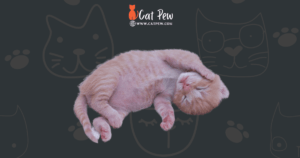
Newborn kittens should be fed every 2-3 hours to ensure they receive adequate nutrition. Without food, they can only go for a maximum of 4-6 hours before their health is at risk.
Newborn kittens require nourishment from birth to support their growth and development. Adequate nursing is crucial during this delicate stage of their lives. Understanding the timeframe for nursing can help ensure the optimal health and well-being of these tiny felines.
The Initial Feeding Period After Birth
Right after birth, newborn kittens receive their first essential meal, known as colostrum. Colostrum is a nutrient-rich secretion produced by the mother’s mammary glands. It contains crucial antibodies that help boost the kittens’ immune system and provide protection against diseases. Kittens should ideally nurse within the first few hours of their birth to obtain this vital colostrum.
Frequency And Duration Of Nursing Sessions
Newborn kittens typically nurse every 1 to 2 hours, depending on their age and individual needs. They have small stomachs and rapidly digest milk, so frequent feedings are necessary to keep them nourished. As they grow, the interval between nursing sessions may gradually increase, allowing them to consume more milk per feeding. When it comes to the duration of nursing sessions, it varies between 5 and 20 minutes per session, depending on the kitten’s appetite and the mother cat’s milk supply. It’s essential to ensure that the kittens have sufficient access to their mother’s milk for the recommended duration to meet their nutritional requirements.
Signs Of Hunger Or Distress In Newborn Kittens
Identifying signs of hunger or distress in newborn kittens is crucial to ensure their well-being. Here are some common indicators to keep in mind:
- Restlessness: Kittens may become restless and start searching for their mother’s teats, signaling their hunger.
- Mewing: Vocalizations such as mewing or whimpering are often a clear indication of hunger or discomfort.
- Rooting: The kittens may engage in a rooting behavior, trying to nudge their mother’s body or surrounding objects in search of milk.
- Weight loss: If kittens are not nursing adequately, they may experience weight loss, which can be a sign of insufficient milk intake.
- Lethargy: A lack of energy, reduced activity, or seeming weak can indicate hunger or distress in newborn kittens.
Watching out for these signs and promptly addressing any concerns can help ensure that newborn kittens receive the nutrition they need for healthy growth and development.
Challenges With Milk Supply
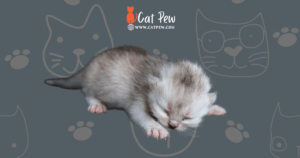
Newborn kittens rely entirely on their mother’s milk for their nutritional needs. However, there are situations where the mother’s milk supply may be insufficient or unavailable. This can present challenges for the health and survival of the kittens. In such cases, it becomes crucial to understand the various factors affecting milk supply and how to address them.
Maternal Milk Production And Availability
The ability of a mother cat to produce enough milk depends on several factors such as her health, nutrition, and genetics. Some cats may naturally have a lower milk supply, while others may experience temporary or long-term issues due to medical conditions or poor maternal care. In cases where the mother cat does not produce enough milk for her litter, the kittens may show signs of malnourishment, weakness, and lack of weight gain. It is important to keep a close eye on the kittens’ growth and monitor their feeding habits to identify any potential milk supply issues.
Supplementing With Kitten Milk Replacers
If the mother cat’s milk supply is insufficient or unavailable, it may be necessary to supplement the kittens’ diet with kitten milk replacers (KMR). KMR is specially formulated to provide the essential nutrients and antibodies that newborn kittens need for optimal growth and development. When choosing a kitten milk replacer, it is vital to select a high-quality commercial product recommended by veterinarians. Avoid using cow’s milk or other homemade alternatives, as they lack the necessary nutrients and can cause digestive upset in kittens. Always follow the manufacturer’s instructions for mixing and feeding the milk replacer to ensure the kittens receive the right amount and consistency.
When To Seek Veterinary Assistance For Milk Supply Issues
If you suspect that the mother cat is not producing enough milk or if the kittens are not thriving despite adequate feeding, it is important to seek veterinary assistance promptly. A veterinarian can assess the situation, conduct a thorough examination, and provide appropriate guidance and treatment options. Some common signs that indicate a milk supply issue include:
- Weak or lethargic kittens
- Lack of weight gain
- Constant crying or restlessness
- Visible ribs or other signs of malnourishment
- The inability or reluctance of kittens to latch onto the mother’s nipples
Remember, the early stages of a kitten’s life are crucial for their overall well-being. Prompt action and veterinary intervention can help address milk supply issues and ensure the kittens receive the necessary nutrition for proper growth and development.
Understanding The Weaning Process
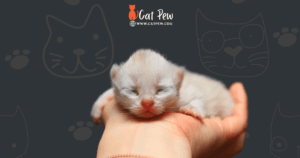
Newborn kittens can go without food for 24-48 hours, but it’s crucial to monitor them closely during this period. Understanding the weaning process is essential for ensuring their proper nourishment and development.
Introduction Of Solid Foods To Kittens’ Diet
When it comes to newborn kittens, it is crucial to understand the weaning process. Weaning is the gradual introduction of solid foods into a kitten’s diet, marking an important transition from exclusive milk feeding to a diet that includes both milk and solid food. This process plays a vital role in their growth and development, ensuring they receive the necessary nutrients for a healthy future. Let’s delve into the details and discover how this transition should be approached.
Gradual Transition From Milk To Solid Food
The weaning process brings about a gradual shift in a newborn kitten’s nutritional needs. While mother’s milk provides essential nourishment in the initial weeks of their lives, it is important to introduce solid food between the ages of three to four weeks. At this stage, their teeth start to emerge, and they become more curious about exploring the world around them. To kick-start the weaning process, you can begin by offering soft, semi-liquid foods. This can include specially formulated kitten milk replacers, canned kitten food mixed with water, or a specialized kitten gruel made from kitten food soaked in milk replacers. Gradually, as the kittens get accustomed to the texture and taste of solid food, you can begin reducing the amount of liquid added to their meals.
Factors Affecting The Weaning Process And Timeline
Several factors influence the weaning process and the timeline at which kittens are fully transitioned to a solid food diet. It is important to recognize and understand these factors to ensure a smooth and successful weaning process. 1. Age: The age at which kittens are introduced to solid food can vary. While three to four weeks is generally considered a suitable time, some kittens may show signs of readiness earlier or later. Monitoring their behavior, tooth development, and overall growth can help determine the ideal time to start the weaning process. 2. Health and Development: Kittens with underlying health issues or developmental delays may require a more cautious and gradual approach to weaning. Consultation with a veterinarian is advised in such cases. 3. Individual Preferences: Just like humans, kittens may have individual preferences when it comes to taste and texture. It is essential to offer a variety of kitten-safe food options and observe their response to identify what they enjoy most. 4. Mother’s Influence: The presence of the mother cat during the weaning process can greatly influence the kittens’ acceptance and comfort with solid food. Keeping the mother involved and allowing her to demonstrate the eating process can help facilitate a smoother transition. By considering these factors and being patient throughout the weaning process, you can ensure that newborn kittens adapt to solid foods at their own pace. Remember to monitor their weight, ensure they are getting proper nutrition, and seek veterinary advice if any concerns arise along the way. Offering this informative section of the blog post will help your readers understand the importance of the weaning process for newborn kittens and provide them with practical tips on how to facilitate a successful transition to solid food.
Risks And Considerations Of Going Without Food
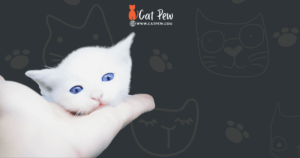
Newborn kittens are highly reliant on their mother’s milk for their nutrition and survival. Going without food for an extended period can have serious consequences on their well-being. In this section, we will explore the potential risks and considerations of prolonged lack of food in newborn kittens.
Potential Consequences Of Prolonged Lack Of Food
A prolonged lack of food can lead to various negative outcomes for newborn kittens. Here are some potential consequences to be aware of:
- Poor growth: Without sufficient nourishment, newborn kittens may experience stunted growth or fail to gain weight. Their tiny bodies require a constant supply of nutrients to support their development.
- Weak immune system: Adequate nutrition is crucial for a strong immune system. Kittens deprived of food may have compromised immune function, making them more susceptible to infections and illnesses.
- Energy depletion: Food provides the necessary energy for newborn kittens to thrive. When deprived of food, these kittens may become lethargic, weak, and lack the energy required for normal bodily functions.
- Organ dysfunction: Prolonged lack of food can lead to organ dysfunction or failure in newborn kittens. The organs rely on a steady supply of nutrients to function optimally, and deprivation can disrupt their normal processes.
- Increased mortality risk: Without access to food, the risk of mortality significantly increases for newborn kittens. Their delicate bodies are unable to withstand prolonged periods of starvation.
The Impact On Growth, Immune System, And Overall Health
The absence of food takes a toll on multiple aspects of a newborn kitten’s health, including growth, immune system function, and overall well-being. It is crucial to understand the potential impact to ensure their proper care and intervention. Bold and italic important phrases: Note the importance of regular feeding to prevent these risks: ‘Poor growth’, ‘Weak immune system’, ‘Energy depletion’, ‘Organ dysfunction’, ‘Increased mortality risk’.
When To Intervene And Provide Alternative Feeding Methods
Recognizing the signs of a newborn kitten going without food is essential in determining when intervention is necessary. Consider alternative feeding methods, such as:
- Bottle-feeding: Offering kitten formula through a bottle can help provide the necessary nutrition in the absence of the mother’s milk. It requires careful sterilization and proper technique for successful feeding.
- Tube-feeding: In some cases, tube-feeding may be employed to ensure newborn kittens receive adequate nourishment. This method involves using a thin tube to deliver formula directly into the kitten’s stomach, under veterinary supervision.
- Foster nursing: When a mother cat is absent or unable to nurse, foster nursing by an experienced cat or a surrogate nursing device may be considered. This allows newborn kittens to receive essential nutrients and stimulation.
In conclusion, newborn kittens should not go without food for a prolonged period, as it can have significant risks and negative consequences on their growth, immune system, and overall health. If you suspect a kitten is not receiving sufficient nourishment, it is vital to intervene promptly and explore alternative feeding methods to prevent these potential complications.
Frequently Asked Questions Of How Long Can Newborn Kittens Go Without Food
How Long Can Newborn Kitten Survive Without Mom?
Newborn kittens can survive without their mom for up to 48 hours. However, it’s crucial to ensure they’re kept warm, fed, and stimulated. If the mom doesn’t return or is unable to care for them, seeking veterinary assistance is essential for their survival.
How Long Can Newborn Kittens Go Between Feedings?
Newborn kittens should be fed every 2-3 hours, as they have small stomachs and need frequent nourishment.
What Happens If Newborn Kittens Don’t Eat?
Newborn kittens who don’t eat may become weak and dehydrated, putting their health at risk. It’s essential to ensure they receive nourishment consistently to survive and grow. If they continue to refuse food, seek immediate veterinary help to address any underlying issues and provide appropriate care.
Will Newborn Kittens Cry When Hungry?
Newborn kittens will cry when they are hungry. It is their way of communicating their need for food.
Conclusion
To summarize, newborn kittens are extremely vulnerable and require frequent nourishment. They typically cannot go more than two to three hours without milk. Ensuring they receive proper care and feeding is crucial for their growth and development. It is essential to seek advice from a veterinarian if you are uncertain about providing suitable nutrition for these delicate creatures.
Remember, their well-being and survival depend on your attentiveness and care.

Winston
I'm Winston, the author of this feline-focused (Catpew.com) blog . My love for cats goes back to my childhood, when I spent countless hours playing with my family's tabby, Mittens. This furry friend instilled in me a deep appreciation for the unique personalities, playful nature, and unconditional love that cats offer.

